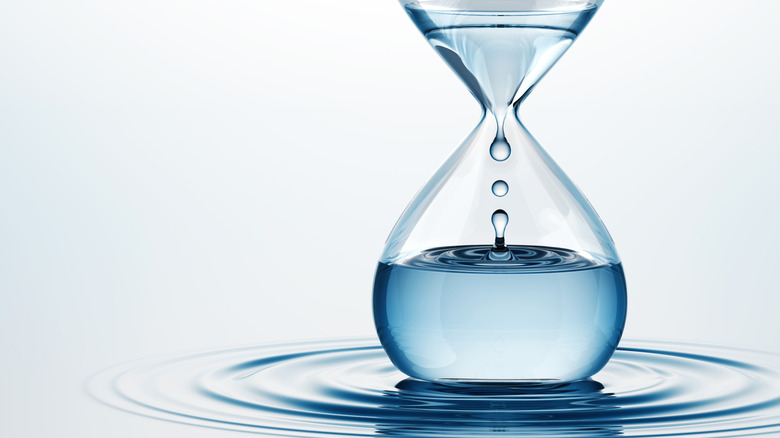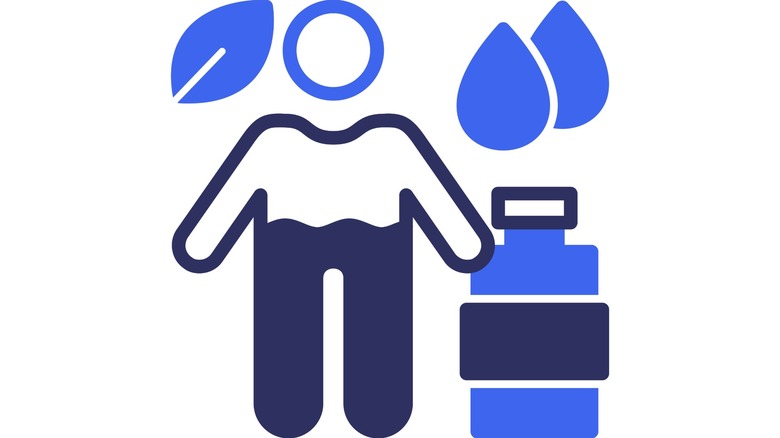How Long Does It Take For The Body To Absorb Water?
It makes sense that water is important for living organisms since Earth's surface is about 71% covered by water. When you consider that two of the three most common elements in the human body make up water — hydrogen and oxygen — it's no surprise that this liquid contributes to between 45% and 75% of your total body weight. Maintaining that balance, though, requires that you drink water, since you lose 64 to 96 ounces every day via breathing, bowel movements, urination, and sweating, although the exact amount varies from person to person. However, the amount of time it takes for your body to absorb the water you drink is more clear.
Your stomach is able to start processing water faster than food because it doesn't contain dyes, fats, proteins, or sugars that need to be broken down. In fact, a study published in the European Journal of Applied Physiology found that water gets it into blood cells and plasma within just five minutes after being ingested. After the stomach, the water enters your small intestine, and that's where most of it is absorbed by the body. After going through the small intestine, the water moves through the large intestine where more of it is absorbed, reaching complete absorption within 75 to 120 minutes. However, it can take longer for your body to absorb water if you have eaten a large amount of food beforehand.
How much water can the body absorb?
It's important to know how much water you need to ingest every day to replenish the water that you naturally lose. According to the U.S. National Academies of Sciences, Engineering, and Medicine, that daily amount is (on average) about 91 ounces for women and 125 ounces for men. However, these recommendations include more than just the water you drink; water from food is also included. Generally, the total water intake of Americans consists of 19% from food and 81% from fluids (per a study in the National Academies Press). That means the average woman and man should drink 74 ounces and 101 ounces in fluids, respectively, every day to maintain their hydration.
Since the body loses about 64 to 96 ounces of water every day, it can certainly absorb at least that much, but, did you know that it can actually absorb much more? Chiropractor Travis Helmers explained in an article for Venture Chiropractic that the body can absorb 4 to 12 ounces of water per hour — which is up to 288 ounces a day. In extreme humidity and heat, though, marathon cyclist Steve Born explains in an article for Hammer Nutrition that the body can absorb about 34 ounces of water in an hour — which is up to 816 ounces a day.
Keep in mind that if you only drink water and don't replenish the electrolytes in your body too, you can get water poisoning (and it's really bad). In fact, water poisoning can lead to hyponatremia which has a lot of bad outcomes. That lack of electrolytes means that the most hydrating beverage isn't always water. A study in The American Journal of Clinical Nutrition found that milk is a better alternative, mostly because of its high electrolyte and macronutrient content.

